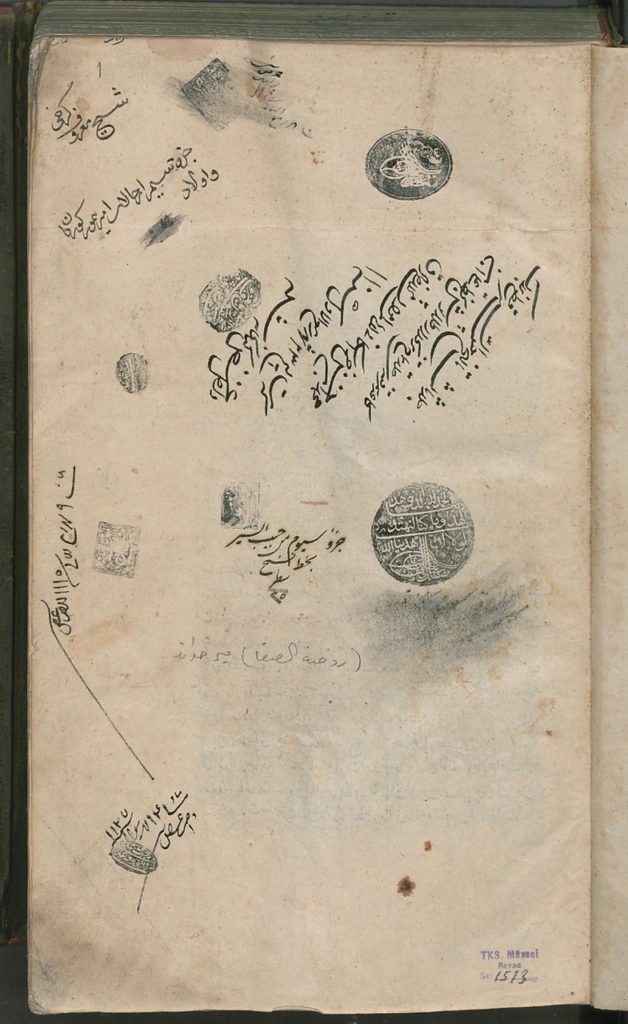Dr. Philip Bockholt (Universität Leipzig, Orientalisches Institut, Arabistik und Islamwissenschaft)
Inner-Islamic Transfer of Knowledge in the Context of Arabic-Persian-Ottoman Turkish Translation Processes within the Eastern Mediterranean between 1400–1750: Mirrors for Princes, Historiography, and Biographies of the Prophet

Notations in a manuscript. (c) T.C. Cumhurbaşkanlığı Milli Saraylar İdaresi Başkanlığı, TSMK, Revan Köşkü 1513, Fol. 1a.
Philip Bockholt’s (Leipzig University) Habilitation thesis on mirrors for princes, historiographical narratives, and biographies of the Prophet seeks to analyse the translation and adaptation of works written in the languages Arabic, Persian, and Ottoman Turkish, which took place in various (border) regions of the Mamluk and Ottoman Empires between the 14th and 18th centuries. These processes constitute a transfer of knowledge within a larger eastern Mediterranean region that is to be contextualised within its specific socio-cultural background, i.e. the conditions underlying the selection, imitation, adaptation, transmission and reception of texts.
The project applies recent approaches of material philology and translation studies that pertain to the examination of textual, paratextual, codicological, and visual aspects of manuscripts as well as the background of the translators themselves. The analysis of the selected manuscript corpus kept in collections like Süleymaniye Library, Topkapı Sarayı, or Millî Kütüphane will allow insights into the socio-political fabric of both scholarly and book culture within the eastern Mediterranean region and, with respect to translation processes, shift the previous focus of research from Istanbul to parts of the Mamluk empire (until 1516/17) as well as the Arab provinces of the Ottoman Empire and its borderlands with Iran. As a result, it will be possible to illuminate from a transregional perspective how actors coming from different cultural milieus adapted norms and representations to objects and texts in a particular context.
